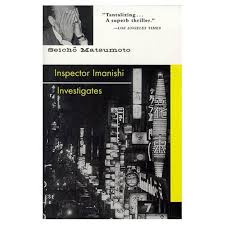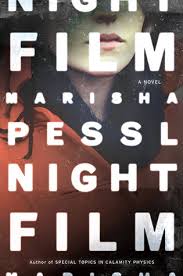 I am quite hard to please when it comes to crime fiction. This is a genre that relies to a great extent on a well-crafted denouement, which is often precisely the let down. Some books, like those by Barbara Vine are redeemed by exceptionally sophisticated plotting and writing, even though the finish does not quite live up to my expectations. So, I do realize that by giving Inspector Imanishi Investigates a five-star rating, I might be setting future readers for disappointment by raising their expectations. But I’ll say with reasonable confidence that if you like crime fiction and/or care for social and cultural commentaries, reading this book will be time well spent.
I am quite hard to please when it comes to crime fiction. This is a genre that relies to a great extent on a well-crafted denouement, which is often precisely the let down. Some books, like those by Barbara Vine are redeemed by exceptionally sophisticated plotting and writing, even though the finish does not quite live up to my expectations. So, I do realize that by giving Inspector Imanishi Investigates a five-star rating, I might be setting future readers for disappointment by raising their expectations. But I’ll say with reasonable confidence that if you like crime fiction and/or care for social and cultural commentaries, reading this book will be time well spent.
Seicho Matsumoto’s Inspector Imanishi Investigates (1989) is the English translation of the much more poetically titled Suna no Utsuwa (Vessel of Sand) which was first published in 1961. Inspector Imanishi’s investigations certainly bear fruit, but shed no light (to me) on why this work should be titled Vessel of Sand, or what the picture on the book’s cover of a man covering his face with both hands is supposed to signify, and how it is relevant. Apart from these burning questions, all plot-related intrigue is sufficiently cleared up.
Imanishi Eitaro (Imanishi being his family name) is a conscientious haiku-writing, bonsai-collecting detective trying to solve the mystery of a battered corpse of an unidentified man in a rail yard. His only clue is a half-line of conversation overheard by waitresses working at a nearby bar, that the victim supposedly had with an unidentified potential suspect. With almost nothing to go on, Inspector Imanishi slowly, methodically sets about identifying and capturing the killer. He does too, at the end.
Inspector Imanishi Investigates has an air of elegant simplicity, although its plot is anything but simple. This police procedural has layers upon layers, red herrings and blind alleys aplenty, and yet the richness of plot is intensified by the subtle and understated writing. The translation seems flat, but doesn’t impact the reading negatively, adding to the overall effect of sparseness. I can’t help but wonder whether reading this book in Japanese will have the same effect—I’ll never know. Imianishi has none of the swagger of Philip Marlowe or the eccentricity of Hercule Poirot. He is just a good detective – deliberate, hardworking, quietly intelligent, though he’s not beyond an occasional miscalculation. He is mostly likeable, even if entirely conventional, and a little brusque (though not unkind) in dealings with his wife, who polishes his shoes, gets his newspaper, and uncomplainingly welcomes him home at the end of long days spent investigating. This is the 1960s after all, and the reader is oft reminded of the post-war, patriarchal setting of the story. Part of the charm is certainly the descriptions of everyday life – the pouring of the green tea over rice for a quick dinner, the Wajima lacquerware obi fasteners that Imanishi gifts his wife, the Kamedake abacus that Imanishi receives in the post, and such.
I am excited to read more by Matsumoto and will look out for Points and Lines and Pro Bono.



